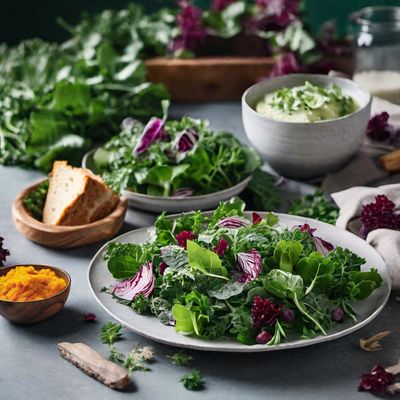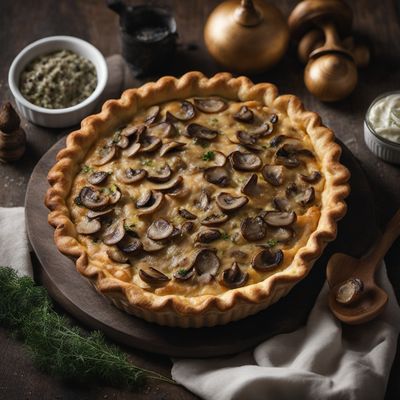
Ingredient
Cheese, vasterbotten
Vasterbotten Cheese: A Swedish Delicacy
Cheese, vasterbotten is a hard cheese with a crumbly texture and a distinctively rich and nutty flavor. It has a golden-yellow color and is often aged for at least 12 months to develop its unique characteristics. The cheese's complex flavor profile adds depth and complexity to a variety of dishes, making it a versatile ingredient in Swedish cooking.
Origins and history
Vasterbotten cheese originates from the Västerbotten region in northern Sweden. It was first produced in the early 20th century and quickly gained popularity due to its exceptional taste. The cheese is made from cow's milk and undergoes a specific aging process to achieve its distinct flavor and texture. Vasterbotten cheese is considered a Swedish delicacy and is often used in traditional dishes like Västerbottenpaj (Vasterbotten cheese pie) or as a topping for crispbread.
Nutritional information
Cheese, vasterbotten is a good source of protein and calcium, while also providing essential vitamins and minerals. It is relatively low in lactose compared to other cheeses, making it suitable for individuals with lactose intolerance. However, it is important to note that cheese is high in fat and should be consumed in moderation as part of a balanced diet.
Allergens
Contains dairy.
How to select
When selecting vasterbotten cheese, look for well-aged varieties that have a firm texture and a deep golden color. Avoid cheeses with any signs of mold or excessive dryness. It is recommended to purchase vasterbotten cheese from reputable cheese shops or specialty stores to ensure its authenticity and quality.
Storage recommendations
To maintain the freshness and quality of vasterbotten cheese, store it in the refrigerator in its original packaging or wrap it tightly in wax paper or aluminum foil. Keep it away from strong-smelling foods to prevent flavor absorption. Properly stored, vasterbotten cheese can last for several weeks.
How to produce
Producing vasterbotten cheese requires specialized knowledge and equipment. It involves the process of curdling cow's milk, separating the curds from the whey, and then pressing and aging the cheese for a specific period of time. Due to its complexity, it is best left to professional cheese producers.
Preparation tips
Vasterbotten cheese can be enjoyed on its own as a table cheese, grated over dishes like pasta or salads, or melted into sauces and soups to enhance their flavor. It pairs well with fruits, nuts, and bread, making it a versatile ingredient in both sweet and savory recipes.
Culinary uses
Vasterbotten cheese is commonly used in Swedish cuisine, particularly in dishes like Västerbottenpaj (Vasterbotten cheese pie), toast Skagen, or as a topping for crispbread. It is also a popular choice for cheese platters or charcuterie boards. Its unique flavor and versatility make it a beloved ingredient in both traditional and modern Swedish cooking.
Availability
Commonly available in Sweden and select specialty stores worldwide
More ingredients from this category » Browse all

Cheese, arzua ulloa
The Creamy Delight

Cheese, nisa
The Hidden Gem of Cheeses: Nisa, a Delightful Culinary Treasure

Cheese, kasseri
The Greek Melting Marvel: Kasseri Cheese

Cheese, raclette
The Melting Delight: Raclette Cheese

Cheese, tronchon
The Art of Tronchon: A Savory Cheese Delight

Cheese, toma piemontese
The Creamy Delight

Cheese, saint paulin
The Creamy Delight

Cheese, provolone
The Melting Marvel

Cheese, edam
The Dutch Delight: Edam Cheese

Cheese, white stilton
The Creamy Delight

Cheese, nokkelost
"Nokkelost: The Spiced Delight of Scandinavian Cheeses"

Cheese, doux de montagne
The Creamy Delight from the Mountains

